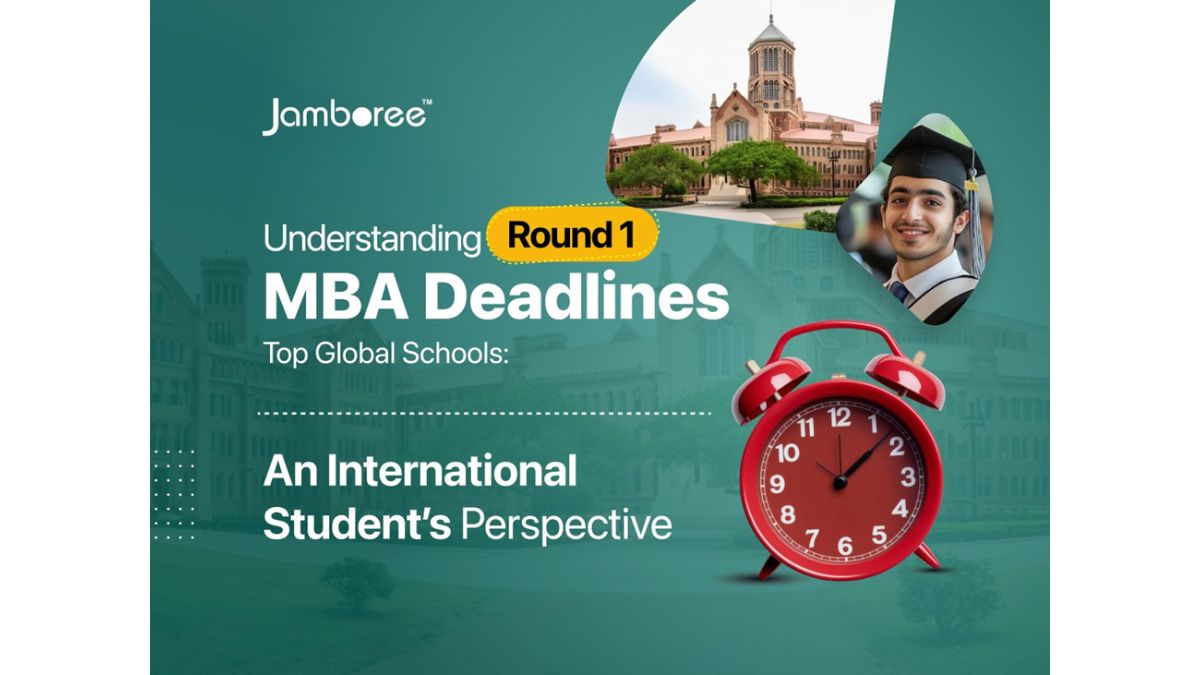New Delhi [India], September 8: As the 2025–2026 MBA application cycle approaches, prospective students worldwide are evaluating the optimal timing for their applications. Understanding the nuances between Round 1 (R1) and Round 2 (R2) can significantly impact an applicant’s strategy, especially for international candidates. For international applicants aiming to join prestigious MBA programs worldwide, Round 1 application deadlines mark a critical juncture. These deadlines typically fall between August and October for top institutions such as Harvard, Stanford, INSEAD, and London Business School. Navigating this timeline effectively can significantly impact your chances of admission, but deciding whether to apply in Round 1 or wait for Round 2 requires careful consideration.
The Advantages of Applying in Round 1
Round 1 MBA applications offer several strategic benefits for international candidates. Firstly, admissions committees tend to admit a larger proportion of their class during this round, increasing the likelihood of acceptance. Additionally, early application affords applicants a longer timeframe to manage essential post-admission processes, including visa procurement and relocation logistics—factors that can be particularly complex for international students.
Applying in Round 1 also signals strong interest and commitment to the program, which can positively influence admissions decisions. This is especially important in highly competitive environments where demonstrating early engagement can set candidates apart.
Crucially, R1 applications often lead to better chances for financial aid and scholarships due to a higher scholarship fund pool at the beginning of the application season.
The Challenges of Round 1 Applications
Despite these advantages, Round 1 presents challenges, particularly for international applicants who may require additional time to perfect their applications. Preparing for standardized tests, drafting compelling essays, and securing recommendations can be demanding, and rushing these elements may compromise application quality. Furthermore, candidates facing uncertainties (such as unresolved career goals or pending job offers) might find Round 1 deadlines restrictive.
Top Schools with R1 Deadlines
- University of Pennsylvania – Wharton: Sep 3, 2025
- Columbia Business School: Sep 3, 2025
- IESE Business School: Sep 25, 2025
- INSEAD: Sep 16, 2025
- SDA Bocconi School of Management: Apr 15, 2026
- MIT – Sloan: Sep 29, 2025
- Northwestern University – Kellogg: Sep 10, 2025
- Duke University – Fuqua: Sep 4, 2025
- Harvard Business School: Sep 3, 2025
- Cornell University – Johnson: Sep 17, 2025
- University of California at Berkeley – Haas: Sep 11, 2025
- University of Chicago – Booth: Sep 16, 2025
- University of California Los Angeles – Anderson: Oct 1, 2025
- Dartmouth College – Tuck: Sep 25, 2025
- IMD Business School: Jan 15, 2025
- NTU Singapore – Nanyang Business School: Nov 1, 2025
- Yale School of Management: Sep 10, 2025
- University of Oxford – Saïd: Sep 1, 2025
- ISB Hyderabad: Sep 14, 2025
- University of Michigan – Ross: Sep 8, 2025
- New York University – Stern: Sep 15, 2025
- Indian Institute of Management, Ahmedabad: Sep 8, 2025
The Strategic Appeal of Round 2
Round 2 deadlines, generally scheduled between December and January, offer applicants additional time to enhance their profiles. This period is valuable for improving test scores, gaining further professional experience, or refining application materials. International students often benefit from this extended timeline, as it allows for thorough preparation and better alignment with personal and professional circumstances.
Moreover, Round 2 applicants can observe trends from Round 1 admissions cycles and adapt their strategies accordingly. While fewer seats are available compared to Round 1, leading to increased competition, many programs continue to admit a substantial portion of their cohort during this round.
Considerations for International Students
While Round 2 offers strategic advantages, international applicants must also weigh the compressed timelines for visa processing and relocation, which may add pressure after receiving admission decisions. Early application in Round 1 can alleviate these concerns by providing a more comfortable timeline for travel arrangements and administrative requirements. Moreover, financial aid and scholarships may be more limited in R2 due to a portion of the funds already being allocated in R1.
Round 3, in any case, is not a viable option for international students, since at that point in the year, there is no time to arrange crucial logistics such as your visa, relocation, flights, and more.
Next Steps for MBA Aspirants
There are plenty of tools and services available that can help you position yourself as a strong MBA candidate, if you are:
- A prospective R1 applicant with your GMAT score already in hand, and want to polish the rest of your application, or
- A prospective R2 applicant who wants to ace the GMAT and build a strong overall application, or
- Someone who wants to learn more about the MBA route to apply in the future
Over the years, institutions like Jamboree Education have perfected their MBA admissions counselling services, owing to their in-house experts, many of whom are M7 graduates themselves. Jamboree helps you target top business schools through a highly personalised approach that places your needs and goals at the core:
- Profile assessment and enhancement
- University shortlist
- GMAT + TOEFL/IELTS prep
- Content development and editing (for application materials)
- Interview training
- Financial planning
- Visa counselling
- Post-admission services (flights, housing, FOREX, foreign bank account setup, and more)
Ultimately, the decision between Round 1 and Round 2 should reflect an applicant’s readiness, strategic positioning, and logistical considerations. International candidates who are well-prepared and confident in their applications stand to benefit from the early advantages of Round 1. Conversely, those who need additional time for preparation or clarity may find Round 2 a more suitable path.
Whichever route is chosen, thorough planning and timely action remain paramount to a successful MBA application journey.
If you object to the content of this press release, please notify us at [email protected]. We will respond and rectify the situation within 24 hours.




